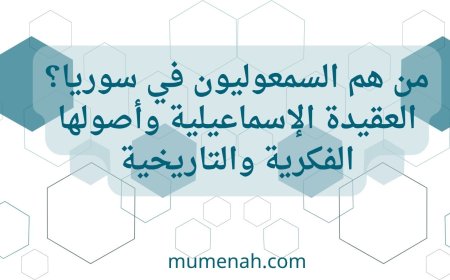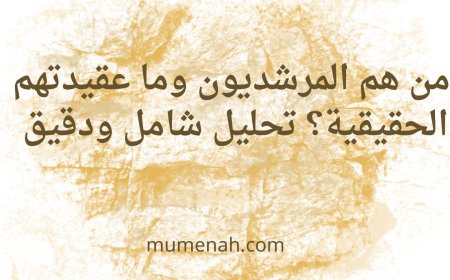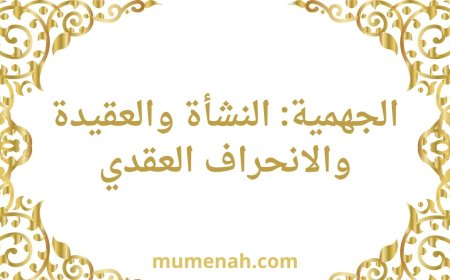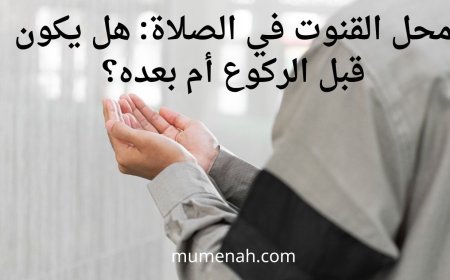The Islamic Perspective on Hitting One’s Wife
Explore the Islamic ruling on hitting one’s wife, examining Qur’anic interpretation, Hadith, scholarly views, and the legal-social context. Understand the ethical limits and modern perspectives that reject domestic abuse in Islam.

جدول المحتويات
- Introduction
- What Does the Qur'an Say?
- The Prophet’s Practical Guidance
- The Conditions That Make It Permissible
- Modern Scholarly Opinions
- The Legal and Social Perspective
- When Is It Haram (Prohibited) to Hit a Wife?
- Can a Woman Seek Divorce Because of Abuse?
- Islam's True Objective: Mercy, Not Harm
- Conclusion
-
Introduction
The topic of a husband hitting his wife in Islam is one that often sparks debate, especially in the modern context where issues of human rights and domestic violence are under global scrutiny. Islam, being a comprehensive religion, has laid down clear guidelines governing marital relationships, including conflict resolution. This article aims to explore the Islamic ruling on this issue through authentic religious sources, scholarly interpretations, and modern socio-legal analysis.
-
What Does the Qur'an Say?
What Does the Qur'an Say?
The primary source often cited in this discussion is the verse in Surah An-Nisa (4:34):
"وَاللاَّتِي تَخَافُونَ نُشُوزَهُنَّ فَعِظُوهُنَّ وَاهْجُرُوهُنَّ فِي الْمَضَاجِعِ وَاضْرِبُوهُنَّ..."
Translation: "But those [wives] from whom you fear arrogance – advise them; [then if they persist], forsake them in bed; and [finally], strike them." (Surah An-Nisa: 34)
This verse must be interpreted in light of the Prophet Muhammad’s teachings and the general principles of justice, compassion, and dignity in Islam.
-
The Prophet’s Practical Guidance
Prophet Muhammad ﷺ never struck any of his wives. In fact, he explicitly discouraged violence against women:
"Do not hit the female servants of Allah."
[Narrated by Abu Dawood]The Prophet's behavior serves as the ultimate standard, demonstrating that while the verse in the Qur'an may appear to permit striking, it is only a last resort within a framework of extreme discipline, restricted by numerous conditions, and should be approached with utmost caution.
-
The Conditions That Make It Permissible
Islamic scholars have outlined strict guidelines to prevent abuse. Any form of physical punishment:
- Must not leave a mark or cause injury.
- Must not be directed at the face.
- Must be symbolic, using something like a miswak (a small tooth-stick).
- Must only be applied after exhausting all other means like counseling and separation in bed.
- Must be free from anger and revenge.
Thus, it becomes evident that this "strike" is not meant to inflict pain but to express serious disapproval in a symbolic way. Many scholars, including contemporary jurists, stress that such a method is practically obsolete today and goes against the spirit of marriage.
- Must not leave a mark or cause injury.
-
Modern Scholarly Opinions
Renowned scholars such as Sheikh Muhammad Al-Ghazali and Dr. Yusuf Al-Qaradawi emphasized that the Qur’anic verse does not grant men a license to physically harm their wives. Instead, it must be understood within its cultural and historical context, and weighed against the overall objectives of Shariah, which include preserving dignity and preventing harm.
Many fatwas today suggest that in most modern societies, physical discipline is neither effective nor appropriate and may lead to greater harm, which Islam categorically opposes.
-
The Legal and Social Perspective
From a legal standpoint, many Muslim-majority countries have adopted civil laws that criminalize domestic violence. This reflects a growing recognition that any physical abuse contradicts both religious values and human rights.
On the social level, violence often leads to the breakdown of trust and long-term psychological trauma, especially for women and children. Islam seeks to foster harmony, compassion, and mutual respect between spouses.
-
When Is It Haram (Prohibited) to Hit a Wife?
It is prohibited (haram) to strike a wife in the following cases:
- Out of anger, vengeance, or frustration.
- In a way that causes injury or fear.
- Without exhausting prior steps (advice and separation).
- If it contradicts local laws or leads to more harm.
- If it violates the woman’s dignity or results in long-term emotional damage.
In all these cases, such behavior is considered sinful and punishable both in Islamic law and civil legislation.
- Out of anger, vengeance, or frustration.
-
Can a Woman Seek Divorce Because of Abuse?
Yes. Islam grants women the right to seek khul' (separation) or divorce in cases of harm or injustice. Physical abuse is a valid reason, and many scholars agree that a woman has the full right to leave a harmful relationship to preserve her well-being.
-
Islam's True Objective: Mercy, Not Harm
The core message of Islam regarding marriage is built on love, compassion, and cooperation:
"And among His signs is that He created for you from yourselves mates that you may find tranquility in them; and He placed between you affection and mercy."
(Surah Ar-Rum: 21)This ideal negates any justification for violence. If a marriage has reached a point where one considers physical measures, it is a signal to seek professional help or mediation—not an invitation to harm.
-
Conclusion
The notion of striking a wife in Islam is not an endorsement of domestic violence, but a deeply restricted and highly conditional act mentioned within a broader framework of ethical and spiritual conduct. With the Prophet ﷺ as the ultimate example of non-violence and respect in marriage, Muslims are urged to embody patience, wisdom, and mercy in their homes. Modern interpretations and legal standards increasingly affirm that physical discipline is not a valid or acceptable solution in contemporary life.










































































